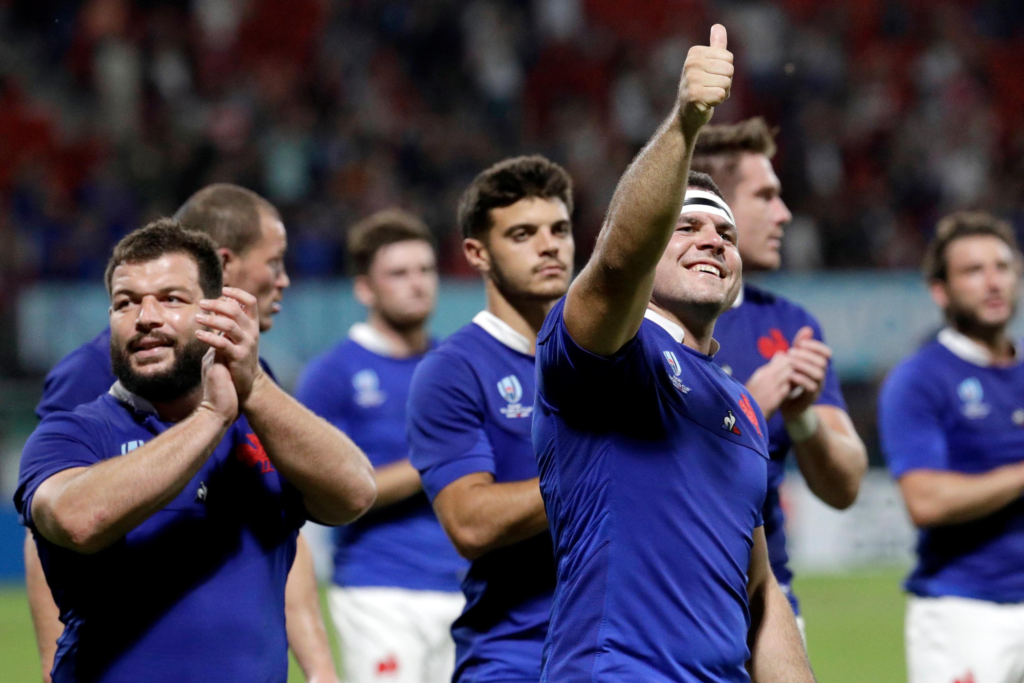There are a number of common threads that run through every sport including rugby. The most notable are the governing rules normally known as the Laws of (the Game) and its enforcers (match officials), the two sides that are competing against each other, and the sports’ fans. Another common feature of organized sports is the singing/playing of the national anthems of participating teams or players since most professionals, especially those who compete at the highest levels often do so with the blessing of their countries and the relevant governing bodies of their sport. Of the national anthems belonging to the 100+ national rugby unions that are recognized by World Rugby, most fans agree that one has distinguished itself from the rest.
What has the best rugby national anthem? Most rugby fans are of the opinion that Les Bleus’ (France’s national rugby union team) has the best rugby national anthem. Known as La Marseillaise, France’s national anthem is known to often inspire a sense of patriotism and even tears from players and fans who belt out its lyrics with a near-incomparable passion.

Why National Anthems Are Sung at Rugby Matches
National anthems are sung at rugby matches and other international sporting events to inspire a sense of nationalism and patriotism in the competing players and their fans. They are a symbolic representation of a team’s and country’s level of togetherness and are considered to be a gesture of respect for the hosts and their visitor(s).
Unknown to many, the tradition of singing national anthems at international sporting events can be traced back to the first-ever rugby match between Wales and New Zealand in mid-December 1905, which was advertised as the “match of the century”.
Both teams were then undefeated with Wales just fresh off of winning the Triple Crown and New Zealand coming into the match undefeated after 27 matches. In typical fashion, the All Blacks first attempted to wage psychological warfare on their opponents by performing their famous pre-match haka.
Refusing to be outshined on their own home ground, former Wales ace Edward “Teddy” Morgan led his side in singing the then-popular Welsh song Hen Wlad Fy Nhadau. As if on cue, their 40,000 supporters at the venue joined in with such vigor that New Zealand outlets called the performance “intensely thrilling” and “even awe-inspiring”.
Morgan’s seemingly unintentional action on that fateful afternoon at Cardiff Arms Park not only started a trend that has carried on to date but also unwittingly gave Wales its national anthem. The hosts won the match 3-0 – an outcome that New Zealand disputed by claiming that a try they had made had not been acknowledged.
A Call to Arms
In order to truly appreciate why La Marseillaise is considered by many as the best rugby national anthem in the world, one needs to carefully unpack the meaning of its eight-stanza, 61-sentence-long lyrics and the conviction behind them.
The anthem can best be described as a call to action for all Frenchmen. The opening lines of the first paragraph capture this sentiment perfectly with the words, “Arise, children of the Fatherland, the day of glory has arrived.”
La Marseillaise’s next three paragraphs call on its citizens to take up arms against those who would want to challenge their way of life or usurp their role as the masters of their own destinies, which provides a perfect opportunity for Les Bleus fans to own the anthem.
The last four paragraphs highlight the bravery of French soldiers (who are in this case their players) and warn their opponents of the inevitable defeat that await them, further vowing to avenge the wrongs committed against them or bravely perish in the attempt.
The Story Behind La Marseillaise
The events surrounding the La Marseillaise vividly denote the heart and conviction of the anthem. The original version was composed by French army officer Claude Joseph Rouget de Lisle after France declared war against Austria in 1792 as “Chant de guerre pour l’Armée du Rhin”, which translates to “War Song for the Army of the Rhine”.
La Marseillaise’s lyrics capture the general mood of the country at the time as it was facing external aggression from Austrian and Prussian armies. Its name is a nod to the Marseille volunteers who first sang the melody publicly causing it to grow in popularity.
France’s legislative assembly adopted it as the country’s national anthem three years later. Its literal and figurative revolutionary message and style have caused it to be adopted into numerous classical and modern musical works.
The composition itself later faced stiff opposition from the powers that were including the legendary Napoleon Bonaparte and monarchs Charles X and Louis XVIII, who banned it or opted for alternatives during their reigns in the early and mid-1800s. It however regained its status in 1879 and has since remained France’s official national anthem.
Honorable Mentions
There are a number of other national anthems that can give La Marseillaise a run for its money. Italy’s Il Canto degli Italiani (The Song of the Italians), which is more commonly known in the country as Inno di Mameli (Mameli’s Hymn) or Fratelli d’Italia (Brothers of Italy) is a good example.
Ireland’s duo anthems Amhrán na bhFiann (The Soldier’s Song) and Ireland’s Call also deserve to be featured in this list. Many agree that the latter is particularly catchy while some, including a number of its own athletes, have found its key changes to be challenging.
Scotland’s Flower of Scotland is also a favorite of many rugby fans for its simplicity. It is however considered an unofficial anthem since the territory is a part of the United Kingdom and must therefore formally use “God Save The King/Queen) as their official national anthem.
While not as popular as the above-mentioned anthems, another two national anthems deserve a mention for their uniqueness. Spain’s Marcha Real is one of only four national anthems without official lyrics. The other three countries (Kosovo, San Marino, and Bosnia and Herzegovina) are not renowned for their exploits in rugby hence the distinction.
On the other hand, Japan’s Kimigayo (His Imperial Majesty’s Reign) is the shortest national anthem with only four lines. The Cherry Blossoms have been a staple in the rugby circuit for almost a century and boast having produced the sport’s all-time leading test try scorer in the legendary Daisuke Ohata.
